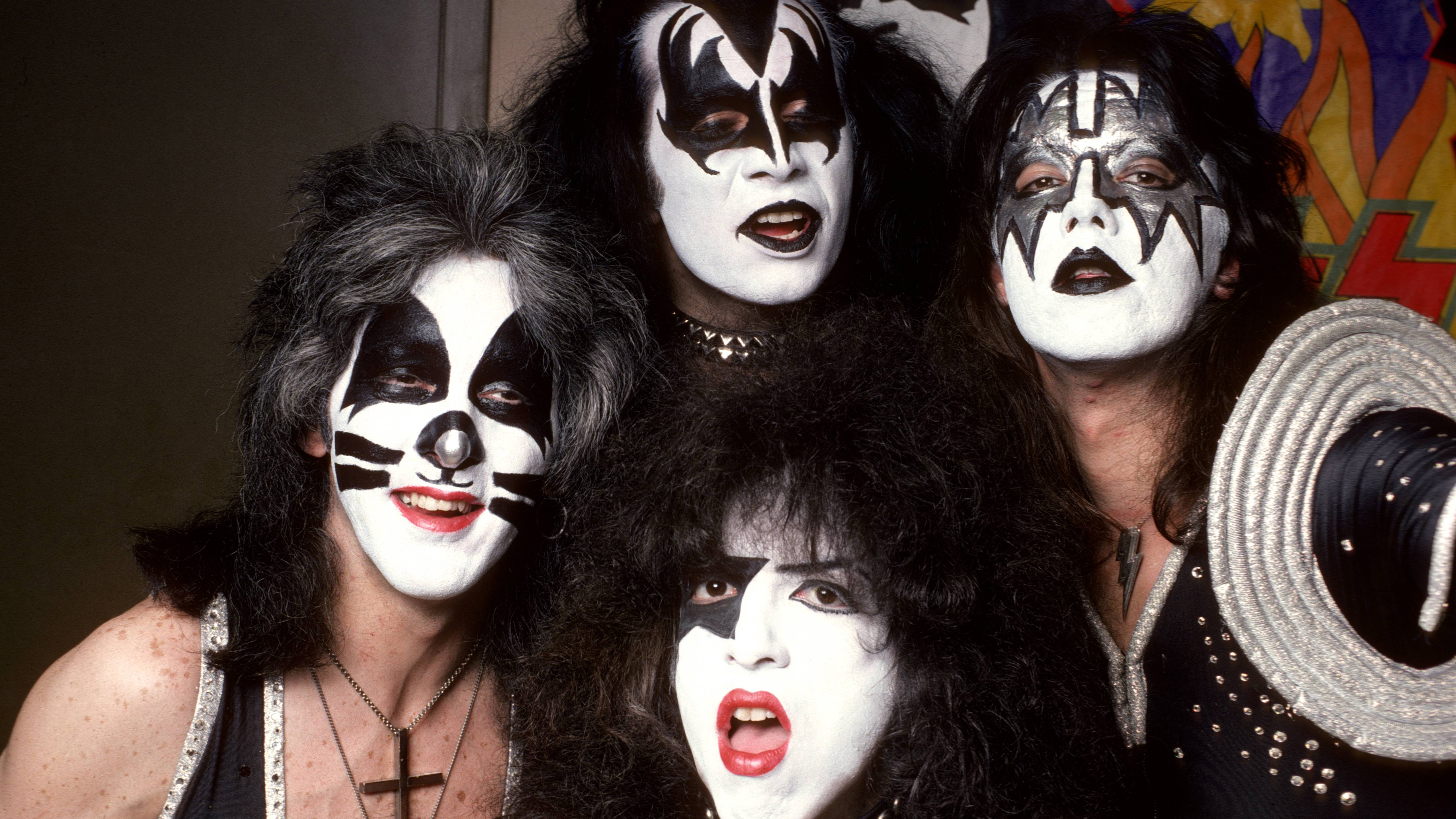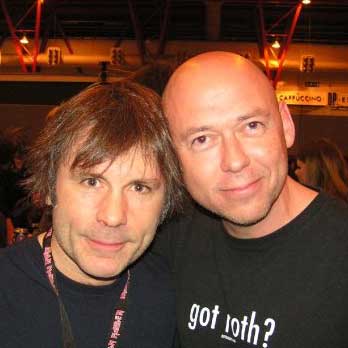“I said to those guys, ‘I would like us to do something where you become Marlon Brando — where you can still be bad boys but there has to be an element of vulnerability’”: How producer Bob Ezrin added a new dimension to Kiss
"It was such a big departure for them," Ezrin says

Want all the hottest music and gear news, reviews, deals, features and more, direct to your inbox? Sign up here.
You are now subscribed
Your newsletter sign-up was successful
The biggest hit single that Kiss ever had in America was in 1976 with Beth — a ballad sung by the band’s drummer Peter Criss.
“It was such a big departure for them,” says Bob Ezrin, the producer and co-writer of the song.
In a new interview for CBS News show The National, Ezrin recalls how Beth was created from humble beginnings and transformed into a classic rock ballad with a unique sound.
“I don’t think Beth was a power ballad,” Ezrin says. “There’s no big rock ’n’ roll guitars, no drums…”
He also recalls how Beth was originally greeted with outright hostility by many diehard Kiss fans: “People thought it was like heresy!” he says.
Ezrin was enlisted by Kiss for their fourth studio album Destroyer after he had produced huge hits for Alice Cooper with songs such as School’s Out and Only Women Bleed.
Destroyer was far more ambitious and polished-sounding than any previous Kiss album, and Beth was the band’s first ballad.
Want all the hottest music and gear news, reviews, deals, features and more, direct to your inbox? Sign up here.
The song was originally named Beck, and was written when Peter Criss was in a band named Chelsea, years before he joined Kiss in 1973.
Beck was co-written by Criss and his Chelsea bandmate Stan Penridge.
In the book Kiss: Behind The Mask, by David Leaf and Ken Sharp, it was revealed that the song was named after Becky, the wife of Chelsea’s guitarist Mike Brand.
“Becky would constantly be calling and interrupting our rehearsals,” Stan Penridge said.
The chorus was: “I know you love complaining but Beck what can I do?”
“It was basically written as a joke,” Penridge said. “If you take the lyric and imagine it as Mike Brand answering his badgering wife, you should get the picture.”
He said of the song’s original arrangement, as demoed by Chelsea: “Beck was a bright tempo in keeping with the light feel of the subject matter.”
For the finished version of Beth, Bob Ezrin would earn a co-writing credit alongside Criss and Penridge, and in his interview with The National he explains why.
“The story about Beth is that politically it was always important that the drummer gets at least one song,” Ezrin says. “So we went through a bunch of songs that Peter Criss had, and this was something that he had written with a friend of his, and it was called Beck…”
He recalled an exchange with the whole band: “I went to see them play live in Ann Arbor, Michigan, to 9000 pimply 15 year old boys. There wasn’t a single girl in the audience.
“We started to talk about working together and I reminded them of an old 1950s movie, a Marlon Brando movie called The Wild One, where he was the leader of a motorcycle gang and Lee Marvin was the leader of the rival gang.
“Lee Marvin and his gang were real bad guys. On Marlon Brandon’s side, yes, they were a motorcycle gang, but he had something — and of course the girl in the town saw that something in him and thought maybe she could fix him. And a romance grew between them.
“So I said those guys [in Kiss], ‘Right now you’re Lee Marvin. You’re everything that scares the girls of America, and I would like us to do something where you become Marlon Brando — where you can still be bad boys but there has to be an element of vulnerability.
“You have to let the girls of America feel that maybe they could fix you.
“And so that’s what we went for when Beth first came in. I thought there was a real opportunity there.”
Ezrin puts it bluntly: “We had this band that was cock-and-balls and appealed to 15 year old boys and all that stuff.”
He was confident that a rewritten Beth would unlock a whole new audience for Kiss.
He says of the original version of the song: “It was a little more jaunty, a little less vulnerable — it was kind of like, ‘Screw you, me and the boys are gonna go play’. So I said, ‘Do you mind if I take that home and play with a little bit?’
“On piano I slowed the song way down… and it just felt like suddenly it was almost like a lullaby.
“It became this gentle sweet thing. And then I tweaked the lyrics because I didn’t want it to be about ‘Screw you’. I wanted it to be about the singer being actually the one that was hurt.”
An important change in the lyric replaced “I know you love complaining” with the more sensitive “I think I hear you calling”.
Peter Criss sang the lead vocal for what became his signature song, but no other member of the band featured on the track.
Bob Ezrin played piano. His longtime collaborator Dick Wagner played acoustic guitar. And orchestration was from New York Philharmonic.
Kiss manager Bill Aucoin later claimed that the band’s leading figures, Paul Stanley and Gene Simmons, remained unconvinced about this song during the making of Destroyer.
“Paul and Gene wanted to take Beth off the album,” Aucoin recalled. “I said, ‘Look, I think it’s a hit. I know it’s not necessarily a Kiss song but it does have a rock ’n’ roll lyric to it. It’s gonna stay on the album.’”
Peter Criss remembered the recording of Beth with a mixture of pride in his own performance and bitterness towards Paul Stanley and Gene Simmons.
Criss recalled in Kiss: Behind The Mask: “The day we recorded it, Bob Ezrin had everybody in tuxedos — the New York Philharmonic.
“When we went to The Record Plant to do the vocals, Gene and Paul were in the console room. I’ll never forget it — they were looking at me like it was one big fucking joke. And I couldn’t get into it and Bob knew it and threw them out.
“They left, I did it in five takes and it was beautiful.”
In July 1976, the hard rock anthem Detroit Rock City was released as the third single from the Destroyer album, with Beth on the B-side.
But it wasn't long before DJs across the nation began flipping the vinyl and playing Beth instead.
In August, Beth was made the official single — and it soared all the way to No.7 on the Billboard Hot 100.
As Peter Criss said: "We used Bob Ezrin — and nobody is better than that."

Paul Elliott has worked for leading music titles since 1985, including Sounds, Kerrang!, MOJO and Q. He is the author of several books including the first biography of Guns N’ Roses and the autobiography of bodyguard-to-the-stars Danny Francis.
You must confirm your public display name before commenting
Please logout and then login again, you will then be prompted to enter your display name.

